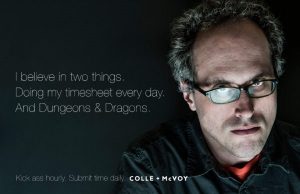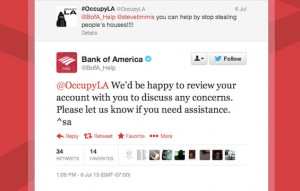July 27, 2024
A loneliness expert reveals the one question that prompts rewarding connections
Monika Jiang shares what we need to unlearn to recenter our relationships, how to create systems of mutual care, and how to resolve conflict before it happens.
BY Jenna Abdou
When Monika Jiang set out to explore modern loneliness she asked a radical question: What if our experience of loneliness is our path back to each other? She took the leap—leaving her role as the head of Curation and Community at The House of Beautiful Business—with the intent that she’d continue pursuing it if others felt similarly. Her affirmation came at her first event, where a participant wrote this in their “lonely letter” . . .
“We are all lonely. We may be eight billion people on this planet, but as Carl Sagan said, we are a tiny, pale blue dot floating in a vast universe. We are then a lonely species, on this ball of rock and water, wondering if there is anyone else out there. And, this is what binds us together, the fundamental nature and experience of being human. In that sense, we are deeply connected in our aloneness, and never truly alone.”
Since then, Jiang—a writer, facilitator, and community builder—continues to create “third places,” both in person and online, to help people connect around their experience of loneliness as well as cultivate their connection skills. In our conversation, she defines relational intelligence as “the capacity to build, nourish, and sustain relationships”—a skill set she believes we can strengthen like a muscle.
Here, she shares what we need to unlearn to recenter our relationships, how to create systems of mutual care, and how to resolve conflict before it happens.
This interview was edited for length and clarity.

Fast Company: In your newsletter, We Are Not Alone in Feeling Lonely, you expressed that we need social intimacy and referenced Lauren Perlant’s definition that “intimacy is ‘an aspiration for a narrative about something shared, a story about oneself and others.’” Tell us more about social intimacy and loneliness. Why is it a fundamental need and how can we cultivate it?
Monika Jiang: [Social intimacy] is what emerges when things are being shared amongst each other. Ironically, this was also how I started with this whole loneliness project. I was thinking if we can build social intimacy through shared human experiences like loneliness—something that is incredibly intimate, subjective, and yet universal—what happens if we create a space where people are “allowed” to share that in a safe way? Then, you have this moment of shared and social intimacy in terms of almost seeing yourself, and experiencing yourself and your experiences, but reflected back to you by the other person. That’s how we go through life and grow—we see parts of ourselves in other people. That’s what social intimacy, to me, means: to cultivate those moments where we can be vulnerable, real, and human. It doesn’t have to be negative and melancholic. It can be something more joyful, [like] sharing that in a moment of awe or gratitude. These emotions activate our prosocial emotions.
You shared: “In a world where the ‘I’ comes first, we’ve diffused our expectations and capacities of what real human intimacy and connection are and can feel like. We must unlearn to relearn what makes the interdependence of ‘I’ and ‘We’ by recentering what’s between us—our relationships to one another—at the heart of everything again.” What do we need to unlearn and relearn to navigate loneliness and this recentering successfully?
We are not superior to anyone or anything. Unlearning that nothing ever has been achieved, or will be achieved, through individual effort. We live and have survived because of our capacity to be with and collaborate with each other. That’s gotten totally lost and forgotten in this age of competition and “me, me, me.” Also, unlearning this self-sufficiency bias and belief that: I cannot ask for help, because what are they going to think? On a more abstract level, unlearn that there is separation and othering.
Then, relearn that the beauty and strength of us as humans is our ability to relate to each other and build relationships; And, not just to build them, but really to sustain them. This is what we have lost as well—The ability not only to connect and make new relationships, but really sustain them and be with the discomfort of having phases where you’re like: I don’t know if I still vibe with that person. You have these phases in every relationship. Sometimes you come together again on a different level and sometimes not. That’s also okay. So, relearning that relationships are at the center of everything in our lives and that’s the benefit of ourselves, but also of each other.
On the topic of interdependence, you shared that: “In today’s age of hyper-individualism, the idea of relying on others is too quickly (and wrongfully) judged as co-dependence.” How might we dissolve that belief, and foster a dynamic where relying on each other’s strengths and asking for help is the norm?
Starting with the latter, don’t be the person who waits to be asked to support, but ask: How can I support you? Not just can, but how, in what specific way? Support is often better than help because people sometimes are like: I don’t need help. Then, for people like me and others, learn how to receive support. A lot of women in particular, at least in my experience and what I’m seeing, are struggling with that, often being, like: Do I deserve this? Yes, you deserve everything. Also, actively ask: I’m unsure about this. Can I seek support in different ways? Then, letting go of this idea of being a burden to someone or a problem. All of that language is not helpful for anyone.

You highlighted the value of exploring how we want to give and receive care, which offers new language for us to discuss how to be in relationship with each other. Why is it important that we discuss this question and how others might help us create shared understanding?
For me, care is another word for love. Care and compassion are two key components of how we relate [to] our social fabric in many ways. Regardless of [the] relationship, including the relationship that you have to yourself, self-care and self-compassion are the baseline for it. To create a new and lasting way of how we learn to give and receive care and compassion equally, [we have] to understand what that means: How do care and compassion manifest themselves? It’s not about: I’m buying a lot of things. I’m going to a yoga class for self-care or spending money to be well. It’s actually the opposite. It’s doing less. It’s about pausing. It’s about being in the body. It’s about reconciling with traumatic experiences you’ve had, reconnecting with your family history, or why certain things are so triggering to you. [It’s about] how you want to relate to others; Who are the people that you have or want to bring into your life and how satisfied are you with that? This is the actual care, and then it transcends to others.
This idea that we take care of each other can be as simple as checking in with each other, but without expecting an answer. That goes back to sustaining relationships because a lot of times in our culture we’re used to: I give and I receive. There has to be an equilibrium. Sometimes it’s not like that. Sometimes you are giving more. There’s always some kind of imbalance. It’s not the point that it’s an equal-sum game. It’s more about I’m able to give more. I have the capacity right now. And, in [the] other way, that person is giving something back to me that I’m able to receive. So, understanding that in a more holistic way would really help.
In a team setting or in friendships—How do you deal with conflict?—before it happens, because it will happen. Do you fight, flight, or freeze? We all have responses to it from our nervous system. And: How would you like to be supported in the moment we’ll be in conflict?
To respect that in the moment is another thing: I see what you’re saying and needing right now. That’s where I’m connecting to nonviolent communication, which is all about needs and feelings. Even though it sounds simple, it’s essential: What do you need? Can you describe what you’re feeling and where that feeling is in your body? So, to help them tune into: What is this bringing up for you? Take me in a little bit. Before I judge you or assume that you need this, first let me check, is that so?

Or, in a conversation, when you reflect back what the person has said: Did I get the meaning right of what you wanted to say? It’s a simple exercise, but it’s really hard to help hear and take care of what wants to be said because often we need a few times to make sense [of it]. That’s what we’re trying to do with our communications. We’re just trying to make sense of: What am I actually trying to say? Then, through the conversations: ‘Ah, there it is. I think that’s what I actually feel.’
I’d love to dive deeper into that because in writing about your nonviolent communication education, you explained the process of “differentiating thoughts from judgment, feelings from needs, and requests from demands” and noted that this discernment is “essential to repairing relationships.” How do you differentiate each of those categories and how does doing so elevate our interactions?
Marshall Rosenberg, who’s the creator of Nonviolent Communication, said: “Every conflict or disagreement—[it] doesn’t always have to be a huge conflict—is a tragic expression of an unmet need.” This idea that we’re not fighting because I hate you and because of whatever you’ve done. It’s not about that. It’s because I had a need that wasn’t met and you had a need that wasn’t met. Now, we’re here. We’re unable to express that and get to the bottom of it because now the fight becomes about the thing that you did and how upset I am because: Why are you always doing this thing?
It is important to differentiate, first of all: Am I making an observation of something or am I already judging it? When I say something, like: I noticed that you put this thing on the floor, not on the shelf. That would be an observation. But, if I say: You did your thing. That’s not an observation. That is already a judgment. It is important to distinguish that and be like—What is the situation?—because it doesn’t add anything if I evaluate your actions negatively and I’m blaming you for this or I’m shaming you for that. It doesn’t do anything for the resolution of the conflict or the communication in general.
Then, feelings and needs are the core elements of nonviolent communication. You go through this process of: What am I feeling? Often, it’s not just one emotion. It’s different emotions, sometimes contradicting. Then, the need: Is it a need for autonomy? For connection? For safety? The baseline is that we have universal needs as humans and universal feelings with different nuances.
Then, demand and request. Request is: Would you be willing to put this thing on the shelf and not on the floor? It’s an open-ended ask. Demand is: Next time, do it like this. It’s a totally different way of dialoguing in the end. Making the person truly seen and heard and making them understand, the other person and vice versa, what the conflict is actually about, which is my need for order or collaboration. Again, we’re coming back to something that is shared; This is my need. Can you meet me somewhere closer to here? So that with your thing, I can meet you closer to there?
Our collective loneliness and longing for connection is the theme that stands out from your sessions, as well as the fact that the majority of us don’t have a place or framework to do so. If you were to design a session for a team to run, what guidelines might you offer them?
First, I would get them out in the open, ideally outdoors. Second, I would take away their phones. Then, start with ways that people can reconnect with their bodies. At any event I do, I always start with a short exercise to ground yourself. It’s nothing like: We’re going into meditation. But, we can all take a few breaths consciously, move our bodies, and recenter. I always incorporate music or some kind of artistic performance. Music is really important.
I love the 36 Questions to Fall in Love. I’ve adapted some of them, like: What do you value most in friendship? What was the last compliment you gave? Who do you admire? If you could change life with a person, who would that be for a day? Any of these kinds of questions help people connect differently. They are in the realm of personal, but they also flow into the professional. I have them on a little fortune cookie. So, you pick one. Then, you go up to people and exchange them. People love it because the questions are good and they have a reason to ask [them].
I would [also] do [this] before to capture any topics or questions—a black box where people can submit: This is a topic I always wanted to talk about, but I’m too afraid. Or, [this] an unresolved thing I would like to discuss. Then, offer a facilitated way we could address some of these issues without making them personal—to open a way where people can interact and listen to each other’s perspectives. That comes from the restorative dialogue practice, but the essential thing is that all conflicts are resolved in the community. So, it’s this practice of hearing each other in [the] group about something that is difficult or stands in the way of connecting—that in itself is very connecting. It’s an almost cathartic way of [saying]: Gosh, let’s talk about this.
Given our conversation, if you were to leave us with one question to ask and one action to take to embody the themes we discussed, what would they be?
The question is: How can we recenter our lives around relationships? That’s my key question because mostly it’s work. Life revolves around work or kids, money or success, right? What if we replace true relationships back in the center?
Then, in the next week—let’s make it a challenge—I would love for people to ask, [starting] with their closest circle, about their feelings of loneliness. Ask your partner, friends, or parents: Was there a time when you felt lonely? How did that feel? It’s about the feeling: How did that experience feel and why was that? It’s been the most rewarding action I’ve taken in these six months and I would love for people to try it.
ABOUT THE AUTHOR
(5)
Report Post







